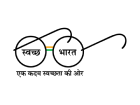Submitted by admin on
Q1.On what aspects /topics training programmes are organized by IGMRI?
Ans:IGMRI, Hapur carries out mainly two types of training programmes, namely; I. Long -Term Training Course (LTTC) of 04 weeks duration on "Scientific Methods of Storage and Inspections of foodgrains”. Two courses in a year by IGMRI, Hapur and Hyderabad and one course in a year by IGMRI, Ludhiana .
II. Short- Term Training Course (STTC) of 02 weeks duration on “Storage Pest Management and Fumigation” by CWC with faculty support from IGMRI. Nine courses in a year by IGMRI, Hapur
In addition special training courses of one week duration for officers and staff of various Govt agencies engaged in the field of grain storage and other post-harvest operations, are also organised at a IGMRI field stations at Ludhiana and Hyderabad. Private candidates, sponsored by various firms and companies engaged in pest-control operations may also join these training programmes.
Q2.Is there some essential qualification prescribed for the private candidates?
Ans: Educational Qualification for STTC/LTTC : Graduate in Biological Sciences -Agriculture, Botany, Zoology with chemistry as a subject.
Q3. What are the facilities available for candidates undergoing training programme?
Ans. The Institute has a well-maintained Museum with attractive sector-wise display depicting various aspects of scientific storage structure of foodgrains through blow-ups, magnifying lens box, display models of traditional and modem storage structures, insect-pests and maps etc. It has further been made lively by exhibiting life-size specimen of rats, birds and insects that are responsible for loss of foodgrains.
The Institute also has a spacious Library enriched with huge collection of books and journals on foodgrains storage related topics. A collection of more than 8500 books and 47 different journals of international repute on a variety of subjects connected with Agricultural Research particularly on the Post-Harvest Operations of foodgrains, Cereal Chemistry, Pesticides, Entomology, Food, Spices, Seed Pathology, Marketing and Farm Engineering etc. is available.
A well-furnished hostel with AC and Non-AC rooms, having the capacity to accommodate 44 trainees is situated in the Institute campus where lodging and boarding facilities are available. A separate TV room and Table Tennis Hall, Badminton court are available for recreation purpose, Meals and Breakfast are served to the trainees staying in the hostel by a contractor on subsidized rates.
Q4.What procedure is to be followed for seeking admission to any of the training programmes?
Ans:Eligible candidates have to apply for training programme by filling the application form available on the institutes website mentioning all the details of educational qualifications. The Institute, after scrutiny of qualifications will allow candidates for training. For govt agencies, the organisations will nominate the candidates for training.
Q5.What is the fee-structure for participation in these training programme?
Ans:
| LTTC | STTC |
|---|---|
| 8000/- for private (General) candidates 2500/- for students No fee for candidates belonging to SC/ST | Rs 20736/- + 18% GST(Rs. 3732) i.e. Rs 24,468/- Course Fee including meals and training material |
Q6. Are the participants of long-Term/Short-Term training courses required to appear at some pre- training/ post training test?
Ans: .Yes, at the end of training there will be a written test/examination in order to announce successful candidates.
Q7. Does the Institute award any certificate to the successful candidates?
Ans: Yes, Successful candidates are awarded certificates after completion of training programme
Q8. Are there some job/career-related opportunities after undergoing these training programmes?
Ans. Yes, After undergoing 2 weeks STTC programme one becomes eligible to apply to the Directorate of Plant Protection,Quarantine and Storage (DOPPQ&S) Faridabad for issue of licence to be Fumigation Operator and make career in that field. Certain pest control companies as also the public/private sector engaged in warehousing business may also provide job opportunities to the successful candidates.













